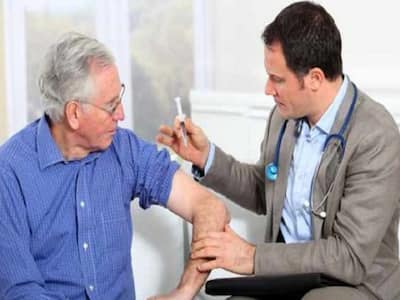Don’t Miss Out on the Latest Updates.
Subscribe to Our Newsletter Today!
Every Breath Counts: Preventing Pneumonia In The Elderly

There is a need to focus on prevention strategies that can avert the risk of pneumonia in the elderly and, therefore, associated morbidity and mortality.
Old age is associated with various health conditions and comorbidities. Pneumonia is one such condition that can impact the life quality of the elderly and lead to challenges like diminished immune response and frailty. As per statistics, the annual incidence of community acquired pneumonia is estimated at 25 44 cases/1000 persons in the elderly. The rate of mortality due to this condition in Asia stands at 7.3 per cent. Today, more than ever, there is a need to raise awareness on prevention of this condition in the elderly, the signs and symptoms, as well as the steps to be taken considering their age.
Signs and symptoms to watch out for
Apart from their age and reduced immunity, older adults who are exposed to air pollution are at an increased risk of getting affected. As per estimates, about 1.6 million pneumonia deaths among adults over the age of 50 are due to air pollution and smoking. Some signs to watch out for include cough, dyspnea and fever. Due to their age, the diagnosis becomes more difficult since many of their existing symptoms mimic other conditions. The condition can present differently in this age group. For instance, elderly with pneumonia can experience
- Weakness
- Lower than normal temperature
- Confusion or delirium
- Urinary incontinence
- Lack of appetite
- Due to the frailty associated with pneumonia, the elderly are also susceptible to falls.
Types of pneumonia that the elderly are susceptible to
There are three types of pneumonia in the elderly depending on what germs caused it and where it was acquired.
Also Read
- Community-acquired pneumonia is what one can get outside a healthcare facility.
- Healthcare-associated pneumonia is what they get during hospitalization.
- Aspiration pneumonia occurs when they inhale food, saliva, or vomit into their lungs. Elderly people with swallowing disorders are at a higher risk.
Managing this condition at home
In some cases, it is possible to treat pneumonia at home. There are healthcare organisations today that help in the management of this condition for the elderly at home through experienced caregivers. When it is caused by bacteria, antibiotics are prescribed. For those who have viral pneumonia, supportive care is provided which includes oral hydration and other supportive care.
But, prevention is the best strategy
There is also a need to focus on prevention strategies that can avert the risk of pneumonia in the elderly and, therefore, associated morbidity and mortality. Some things to remember are as follows.
- Getting vaccinated: The pneumococcal vaccine is an important first step in preventing this condition. There are two kinds of pneumococcal vaccines for the elderly over 65 years. It is important to ensure that you consult a specialist in case you are someone with an existing health condition. Pneumonia is a potential complication of influenza and, therefore, it is also imperative to take vaccine for the latter.
- Washing hands regularly: Good hand hygiene can go a long way in preventing pneumonia and other infections since they are bacterial or viral in nature.
- Quit smoking: For those above the age of 65 who still smoke, it can damage the lungs and make it harder to ward off or fight a respiratory infection like pneumonia. This makes it all the more important to quit the habit.
- Healthier lifestyle: The elderly requires a balanced diet, regular exercise, and good sleep for better overall health and well-being. These habits will improve immunity and make it possible to ward off any potential infection or leave you strong enough to avoid complications.
The last word
The elderly are a vulnerable segment and the right prevention strategies can go a long way in the fight against a condition like pneumonia. For those who need support, there are home healthcare providers who can assist. Timely diagnosis, the right lifestyle, and ample support are the cornerstones.
(This article is authored by Dr Vishal Sehgal, President, Portea Medical)


